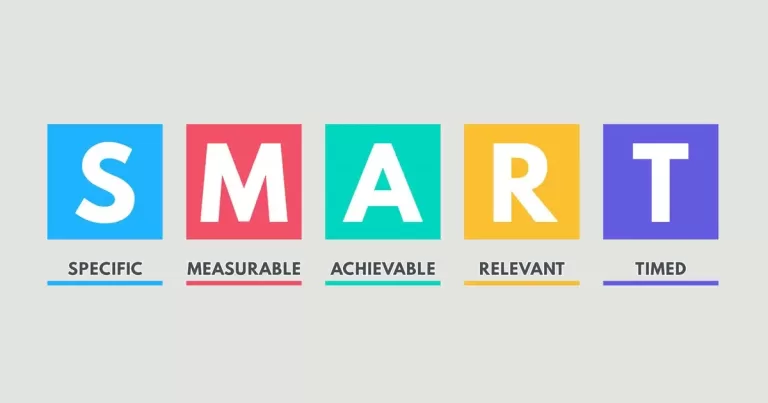
Pros and Cons of Studying Online
This page may contain affiliate links. If you choose to purchase after clicking a link, I may receive a commission at no extra cost to you.
Why study online?
Online learning has become a popular and convenient way of pursuing education in the 21st century. More and more people are opting for online courses, degrees, and certificates to advance their careers, learn new skills, or simply explore their interests. But what are the benefits of studying online? And what are the challenges and opportunities that online learners face? Let’s explore some of the reasons why studying online can be a rewarding and fulfilling experience for anyone who wants to learn.
Advantages of studying online
One of the main advantages of online learning is flexibility. Online learners can choose when, where, and how they want to study, according to their own preferences and schedules. They can access their courses from anywhere in the world, as long as they have an internet connection and a device. They can also pace themselves and adjust their workload according to their personal and professional commitments. Online learning allows learners to balance their studies with their other responsibilities, such as work, family, or hobbies.
Another benefit of online learning is diversity. Online learners can interact with people from different backgrounds, cultures, and perspectives, which can enrich their learning experience and broaden their horizons. They can also access a wide range of courses and programs from various institutions and organizations, which can offer them more options and opportunities to pursue their goals. Online learning can expose learners to new ideas, insights, and perspectives that they might not encounter in a traditional classroom setting.
A third advantage of online learning is affordability. Online learners can save money on tuition fees, transportation costs, accommodation expenses, and other related costs that are associated with attending a physical campus. They can also take advantage of free or low-cost online resources, such as e-books, podcasts, videos, and webinars, that can supplement their learning and enhance their skills. Online learning can make education more accessible and affordable for anyone who wants to learn.
Disadvantages of studying online
Of course, online learning also comes with some challenges and drawbacks that need to be considered. Online learners need to have self-discipline, motivation, and time management skills to succeed in their studies. They need to set clear goals and deadlines for themselves and stick to them. They also need to overcome distractions and procrastination that might interfere with their learning process. Online learners need to be proactive and independent in seeking help and support when they encounter difficulties or have questions. They need to communicate effectively with their instructors and peers through various online platforms and tools.
Online learning is not for everyone. Some people might prefer the face-to-face interaction and socialization that a traditional classroom environment provides. Some people might find online learning too isolating or impersonal. Some people might struggle with the technical aspects or the quality of the online courses or programs. Online learning requires a certain level of commitment, dedication, and adaptability from the learners.
Cost of studying online
Online study courses are becoming more popular as a way of learning new skills, advancing your career, or pursuing your passions. But how much do they cost and what factors affect their price? In this blog post, we will explore some of the common costs associated with online study courses and how to find the best value for your money.
One of the main costs of online study courses is the tuition fee. This is the amount that you pay to enroll in the course and access the learning materials, such as videos, readings, quizzes, assignments, and feedback. The tuition fee can vary widely depending on the course provider, the level of difficulty, the duration, and the accreditation of the course. For example, some online courses are free or low-cost, while others can cost hundreds or thousands of dollars.
Another cost of online study courses is the technology fee. This is the amount that you pay to use the online platform or software that hosts the course. Some online courses include this fee in their tuition fee, while others charge it separately or require you to purchase a subscription or license. The technology fee can also vary depending on the features and functionality of the platform or software, such as interactive tools, live sessions, peer support, and certificates.
A third cost of online study courses is the personal expense. This is the amount that you spend on your own equipment, materials, and resources to complete the course. For example, you may need to buy a laptop, a webcam, a microphone, a headset, a printer, a textbook, or a software application. You may also need to pay for internet access, electricity, transportation, childcare, or other expenses related to your online learning.
The total cost of online study courses can be influenced by several factors, such as:
- The type and quality of the course: Some courses are more expensive than others because they offer more content, more interaction, more feedback, more recognition, or more support.
- The demand and supply of the course: Some courses are more expensive than others because they are more popular, more competitive, more exclusive, or more scarce.
- The financial aid and discounts available: Some courses are more affordable than others because they offer scholarships, grants, loans, waivers, coupons, or other forms of financial assistance.
To find the best value for your money when choosing an online study course, you should consider:
- Your goals and needs: What do you want to learn and why? How will the course help you achieve your personal or professional objectives?
- Your budget and preferences: How much can you afford and how do you like to pay? Do you prefer a one-time payment or a monthly installment? Do you prefer a fixed price or a variable price?
- Your learning style and pace: How do you like to learn and how much time do you have? Do you prefer a self-paced course or a scheduled course? Do you prefer a solo course or a collaborative course?
By comparing different online study courses based on these criteria, you can find the one that suits your situation and expectations. Online study courses can be a great way to learn new things and improve your life. But before you enroll in one, make sure you understand its costs and benefits.
Popular Online Course providers
Are you looking for a way to learn new skills, advance your career, or pursue your passions? If so, you might want to check out some of the popular online course providers that offer a variety of courses on different topics. Online courses are a great way to learn at your own pace, from anywhere in the world, and with flexible schedules. Here are some of the popular online course providers that you might want to explore:
- Coursera: Coursera is one of the largest and most well-known online course providers, with over 5,000 courses from top universities and companies. You can find courses on anything from data science and business to arts and humanities. Coursera also offers certificates and degrees for some of its courses.
- Udemy: Udemy is another popular online course provider, with over 150,000 courses on various subjects. Udemy courses are created by instructors from different backgrounds and expertise, so you can find courses on almost anything you can think of. Udemy courses are often affordable and have lifetime access.
- Skillshare: Skillshare is an online course provider that focuses on creative skills, such as design, photography, writing, and more. Skillshare courses are short and project-based, so you can learn by doing and share your work with other learners. Skillshare also has a community of creators and experts that you can interact with.
- edX: edX is an online course provider that partners with leading universities and organizations to offer high-quality courses on various topics. edX courses are rigorous and academic, and some of them can count towards college credits or professional certificates. edX also has a range of microcredentials and degrees for those who want to pursue higher education online.
These are just some of the popular online course providers that you can choose from. There are many more options out there, depending on your interests and goals.
Wrapping it up
For those who are willing to embrace the challenges and opportunities that online learning offers, studying online can be a rewarding and fulfilling experience that can help you achieve your personal and professional goals. Online learning can provide learners with flexibility, diversity, and affordability that can enhance your education and enrich your life. Start browsing and enroll in an online course today!








Leave a Comment